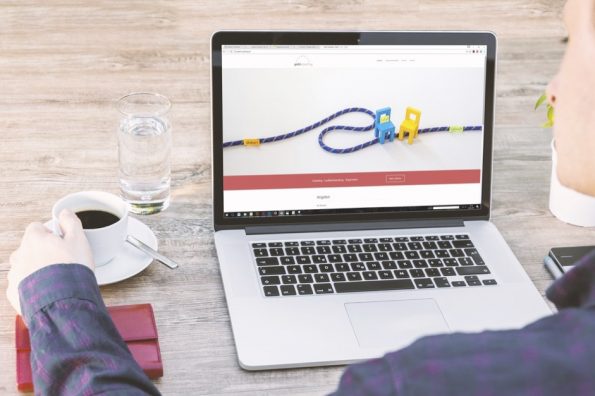Website Design Tactics to Reduce the Bounce Rate
It is tough to get a steady stream of visitors to your website; however, it can be a bigger challenge to convert them into customers. If you have been noticing that despite getting substantial traffic to your website, not enough visitors are converting, it could well be due to them abandoning your site. A high bounce rate can prove to be very costly because it makes your online marketing budget go to waste.
Consulting a professional web design company can help you resolve issues that can range from a slow loading website, a confusing content layout, aesthetics that don’t appeal, and more. To optimize your website for conversions, an experienced web development company will typically identify the reasons for the high bounce rate and address them using one or several of these tactics:
Make the Website Load Faster by Decluttering It
Among the most common reasons for websites to have a high bounce rate is that they do not load quickly enough for the visitors to proceed with their search or purchase requirements. It is also very important that the mobile site is optimized for loading time since currently more than half of the internet traffic is generated by mobile users. According to experts, the website should ideally load in three seconds or less to prevent visitors from abandoning it and moving on to a competitor.
Some of the best ways to speed up your site loading are to optimize the size of your images so that they consume less internet bandwidth, however, you should take care to ensure the quality of the images is not compromised. You should remove all the plugins you do not require since having too many of them can slow down the site significantly.
Streamlining the website code by redundant characters also acts to considerably speed up the site. Among the best ways of speeding up the site is to switch to a web host with enough bandwidth because even though they are more expensive, the gains make the cost worthwhile. According to Forbes, just one second delay in the time taken by a webpage to load can lead to the page views dropping by 11%. With as many as 64% of online buyers claiming that they would shop elsewhere if the site does not load quickly enough, the critical importance of a fast site cannot be overemphasized.
Optimize the Website for Conversions
The website not only serves to deliver information about the company and its products but also functions to encourage conversions as per the business objectives. These conversions can range from purchases on the e-commerce platforms to signing up for newsletters or participating in a contest or poll. Unless the website is optimized for conversions, visitors are likely to encounter distractions and fail to conclude the conversion successfully. You can greatly reduce the bounce rate by carefully mapping out the path that the visitor takes from the homepage or a product page to the conclusion of the desired conversion. Not only should you conduct repeated tests by yourself but also ask others for their feedback regarding any obstacles they faced in converting.
It is a good idea to have the CTAs pointing to the conversion points placed prominently above the fold so that the visitors can easily spot them and take necessary action. You also need to pay thought to make the CTAs as compelling as possible. Try to ensure that the visitors have to click as few times as possible to conclude their conversions. E-commerce platforms especially should make the transaction seamless to discourage the abandoning of shopping carts.
Make Effective Use of Colors
Website developers need to use colors not only to make the webpage attractive and create synergy with the brand but also to ensure visitors to the website can easily read the contents. If the visitors cannot easily comprehend the text because of the color scheme, they’re likely to miss out on the value of the contents and fail to convert. The text on the webpage needs to be in a color that contrasts well with the background for easy readability. The higher the contrast, the better the readability! If you do need to use multiple colors, you should do so sensibly and without trying to use too many.
The point is to use colors that add to the overall impact of the page not because you think they look cool. It is invariably better to use a color scheme that uses colors that complement each other. Keep in mind that different colors evoke different emotions, so you need to appreciate the psychology of colors to ensure that your color scheme does not jar at the emotional level and prevent conversions. Also, you need to use a sharply contrasting and bright color to make sure that the noticeability of your CTA is high, according to a top web development company in Egypt.
Have an FAQ Page
Customers are likely to have many questions regarding various aspects of your business, especially on product warranty, shipping, returns, environment-friendliness, usage, and other critical information so that they can make better-informed decisions. Having a FAQ page dedicated to answering commonly-asked questions can act every effectively to reduce the website bounce rate. It is because visitors can find the information they want when they’re on the site and do not have to call or send an email seeking clarification. Providing answers on the spot encourages customers to go ahead with product purchases more confidently and boosts sales revenue.
The presence of a FAQ page with updated information is also a strong SEO signal for driving better search engine results page ranks. Make it a point to include your contact information on this page too, with details of what information users can obtain by contacting you.
Conclusion
Reducing the bounce rate of your website is a critical necessity to ensure that your marketing budget delivers the desired ROI. In addition to the steps outlined above, one of the most effective things you can do is to ensure that your website is mobile-friendly. This is because mobile users become frustrated if the page does not display properly on their devices


